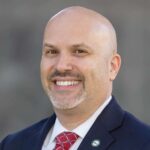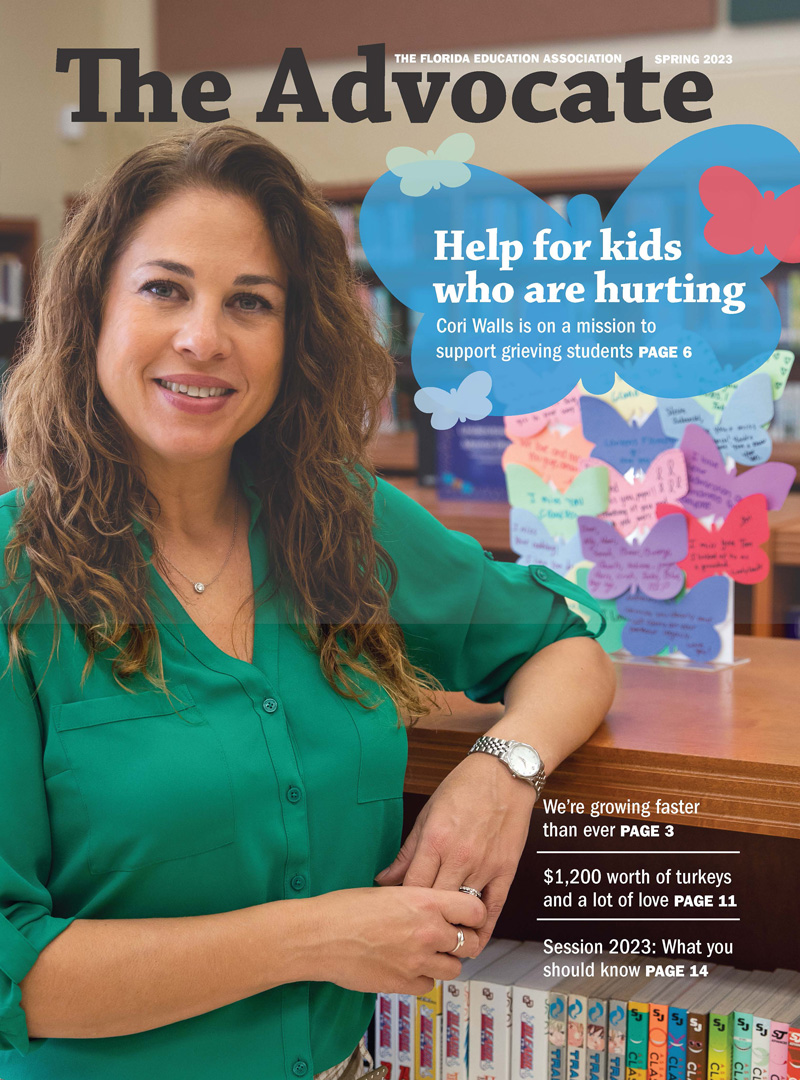This column was originally published online on Oct. 15, 2021, and in print on Oct. 17 by the South Florida Sun Sentinel.

FEA President
“South Florida schools reporting teacher, support staff shortage”
“Hillsborough County School District looks to fill hundreds of open job positions”
“Bus driver shortage leaves some Florida students waiting for hours”
The reports of severe staffing shortages in our schools keep coming. In districts throughout the state, there aren’t enough people to teach, transport, feed and otherwise care for Florida’s students. At the start of August, the Florida Education Association (FEA) counted nearly 9,000 advertised vacancies in our public schools. The vacancies should have decreased by half or more by October, but a recent recount showed they have edged up instead.
It is easy to assume this is all due to Covid. In truth, severe shortages of teachers and support staff were a preexisting condition for Florida’s public schools.
Once Covid fades, our districts will continue to be weakened by teacher and staff shortages that have a direct impact on our students and the state’s future. If Floridians want strong public schools, and members of both major political parties said in a recent FEA survey that they do, the shortage problem needs to be solved.
The good news for state lawmakers and officials is that there are simple fixes that will make it easier to recruit and retain the teachers and education support staff that our students need.
The first and most obvious fix is to pay teachers and education staff professionals the fair, competitive salaries they deserve. Despite efforts over the past two years to increase pay for teachers, that is not currently the case for teachers or staff.
Let’s look at what happened with teacher pay. The Great Recession that began in 2008 is a line of demarcation for funding our public schools, with the recession having triggered cuts that were never properly restored. Since 2006-2007, Florida has seen approximately a 4.5 percent increase in students, a 5 percent increase in staff and a 5 percent decrease in funds for salaries, as adjusted for inflation. Even including the governor’s boost to teacher pay, there is about $750 million less for teacher salaries now than there was 15 years ago.
The push by the governor to increase teacher pay was much appreciated, but it ended up being a lopsided effort focused on pay for beginning teachers. That has left some highly qualified, experienced educators making the same salary as new hires. While Florida’s national ranking for beginning teacher pay has improved, our teachers overall are still some of the lowest paid in the nation, ranking 48th in average pay. Wages also rank near the bottom nationally for our support staff — bus drivers, paraprofessionals, custodians and other essential employees.
While the previous increases in teacher pay have been a welcome step in the right direction, they were only a step. We would urge lawmakers to increase and extend their efforts to ensure that all school employees are paid fairly, including support staff and veteran teachers.
As educators, we at the FEA can’t help but think what it would mean if some of the hundreds of millions of public dollars diverted to unaccountable private and religious schools were instead directed back to public schools, the schools that educate 90 percent of Florida’s children and are open to all of them. That money could make a big difference in recruiting and retaining certified teachers and qualified staff.
Working conditions are also a huge factor in Florida’s shortages. Educators want to be respected as professionals. They are the experts who know firsthand what students need. As Florida looks to replace the Florida Standards Assessments (FSA) with progress monitoring, we ask that state lawmakers and officials listen to educators on what works best for our students. Our state can open up more time for genuine teaching and learning by reducing the time our students spend on standardized tests and the stakes associated with those tests. Everyone wins.
The conditions driving Florida’s educator shortages won’t be fixed overnight. Curing Covid wouldn’t solve schools’ problems with hiring and keeping qualified teachers and staff. They can be solved, however, through sustained, good-faith efforts to do what’s right for educators, students and Florida’s public schools.
Andrew Spar is president of the Florida Education Association, representing more than 150,000 PreK-12 teachers and education staff professionals, higher education faculty and graduate assistants, students preparing to become teachers, and retired education employees.




